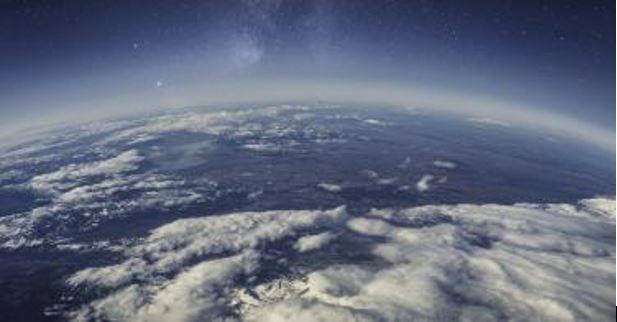
isil terzioglu/Getty Images
Climate Change: The Science Doesn’t Support the Heated Rhetoric
By Roy Spencer
Key Takeaways
- Other than modest warming, there has been little change in any kind of severe weather that can be attributed to global greenhouse gas emissions
- Yes, storm damages have increased substantially in recent decades, but that’s only because there is so much more infrastructure for storms to destroy now.
- Stop believing everything you read about climate change. You’ve been misled. There is no climate crisis.
We are constantly reminded that we are experiencing a climate crisis, but as a climate scientist, I can tell you that’s not what the science has shown us so far. Other than modest warming, there has been little change in any kind of severe weather that can be attributed to global greenhouse gas emissions.
You don’t have to take my word for it, despite my credentials. It’s the conclusion of the U.N. Intergovernmental Panel on Climate Change (IPCC). Its most recent report concludes that, other than direct temperature-related effects, there have been virtually no changes in severe weather that we can confidently attribute to greenhouse gas emissions from the burning of fossil fuels.
And they do not anticipate that conclusion to change much, even by the end of this century.
Yet media reports on every tornado or hurricane that affects us are often accompanied by claims like “experts say we can expect more of this with climate change.” It doesn’t matter that there has been no long-term trend in U.S. landfalling hurricanes since the mid-1800s, or that the incidence of strong to violent tornadoes in the U.S. is down 50% since the 1950s.
Yes, storm damages have increased substantially in recent decades, but that’s only because there is so much more infrastructure for storms to destroy now. It’s not due to worse weather.
Dubious Model Projections
Virtually all the three dozen climate models the IPCC relies upon for projections of climate change have predicted too much global-average warming since the 1970s. Amazingly, all of them have overestimated the observed weak summertime warming in the agriculturally critical Corn Belt. Yet governments around the world use these models to justify restrictions on fossil fuel use.
Sea level rise was occurring in the late 1800s, before CO2 could be blamed. We are likely contributing to that problem, but it would likely have to be accounted for in coastal planning even without the human contributions.
Tropical reef damage due to ocean warming and a slight reduction in ocean pH from more dissolved CO2 has not been as serious a problem as originally feared. In the last 10 years, the living portion of the Great Barrier reef has experienced unexpected, widespread growth after record losses.
The exaggerated projections of climate models have led many countries to adopt extremist “Net Zero” goals, aiming for no CO2 emissions at all by 2050. This is essentially impossible since the world continues to run on fossil fuels as our dominant energy source.
Distorted Public Perceptions
A Pew Research Center survey found that over 50% of Americans who experienced severe weather in the previous 12 months believe that climate change played a role. This is despite the IPCC’s conclusions that climate change cannot (yet) be blamed for severe weather increases, a situation they expect to not change much even by 2100.
This demonstrates how we have been misled by the vested interests who financially benefit from convincing the citizens we are in a climate crisis. These include environmental organizations supported by fundraising and large philanthropic donors; companies that manufacture, install and maintain wind and solar power equipment and electric vehicles (EVs); and journalists who are more interested in Saving the Earth than reporting the truth.
Climate change is big business for a lot of players. That includes a marching army of climate scientists whose careers now depend on a steady stream of funding from governments.
The Good News
As a climate scientist, I agree that our greenhouse gas emissions produce some warming. But is this necessarily a bad thing? Ten times as many people die from cold weather than from hot weather. Agricultural yields of corn, soybeans, wheat, and rice continue to break records nearly every year. Growing seasons at high latitudes have been lengthened. It has been estimated that the agricultural benefits of more CO2 (which is necessary for life on Earth) has totaled trillions of dollars.
The oppressive heat and record high temperatures some urban areas experience in the summer is dominated by the urban heat island effect (UHI) due to paved surfaces and buildings, an effect that has increased with population, and would exist in the absence of global climate change.
Stop believing everything you read about climate change. You’ve been misled. There is no climate crisis.
Roy Spencer is a Visiting Fellow in The Heritage Foundation’s Center for Energy, Climate, and Environment.
From heritage.org